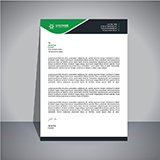
A North Carolina agency got sued by its client when a carrier denied coverage
based on misrepresentation.
The insured lived in a rural part of North Carolina. His property included five
acres and a half-acre pond in front of the home. Until 2016, he had obtained
homeowners insurance through a membership organization to which he belonged. That
year he worked with a local insurance agency and replaced his coverage with a major
carrier. The insured completed and signed a one-page application, and a producer from
the agency inspected and photographed the property. The agency stored the report and
photos in its files.

The insured’s relationship with the carrier was short-lived. By early 2017 he was
back with the insurance provided by his organization. That summer, the agent tried
again, this time with a non-admitted carrier. The agency did not have a surplus lines
broker’s license, so it obtained a quote from a wholesale broker. According to the
appellate court’s opinion, the agent:
● Told the insured that the replacement policy would provide the same
coverage he had at a lower premium.
● Did not tell him that another broker was involved.
● Did not provide him with any information about the carrier, including the
fact that it was non-admitted.
● Asked him to sign a one-page application that asked no questions about
the home or property.
● Did not ask him any additional questions about the home or property.
The insured signed the application, assuming that the agent had all needed
information. The application contained a pre-printed statement saying, “I have read the
above application and any attachments and declare that the information is true and
complete.” The carrier issued the 2017 policy and renewed it in 2018.
One month after the renewal took effect, a storm caused substantial damage to
the insured’s home and contents. The next month the carrier canceled the policy on the
basis that the insured had made material misrepresentations in obtaining it. Had they
known about the size of the property and the pond, they said, they never would have
issued the first policy.
The insured responded by suing the agency, the wholesaler, and the carrier on a
large number of grounds. All of the defendants moved to have the case dismissed. In
February 2021, the trial court did just that, and the insured appealed.
In September 2023, the North Carolina Court of Appeals upheld most of the trial
court’s decision. Notably, they dismissed the insured’s accusations of fraud, breach of
fiduciary duty, and conspiracy against the agent. However, they reinstated the insured’s
negligence claim against the agency. The judges wrote that the insured’s failure to read
the application before signing may have contributed to his loss, but it was up to a jury to
determine whether that was enough to make him liable for his own loss. They found the
negligence claim to be plausible given the facts provided and sent the case back for
trial.
There is no record of further proceedings to date. The two sides may be
negotiating a settlement.
It is hard to fathom why this agency sent an incomplete submission to the
wholesaler when they had a copy of an inspection report and photographs of the
property in their files. The record does not indicate that this was a last-minute rush
situation. The agency likely had no admitted markets interested in the account, which is
why they went to the wholesaler. The failure to provide a complete picture of the risk in
the submission created this problem. The wholesaler may have been able to offer other
carriers at a higher premium. That would have been better than an uninsured loss.
To do the best job for the client, an agent should provide all known information to
prospective carriers. Some carriers may decline the risk based on that information, but it
is far better for them to turn it down before a large loss occurs.
















